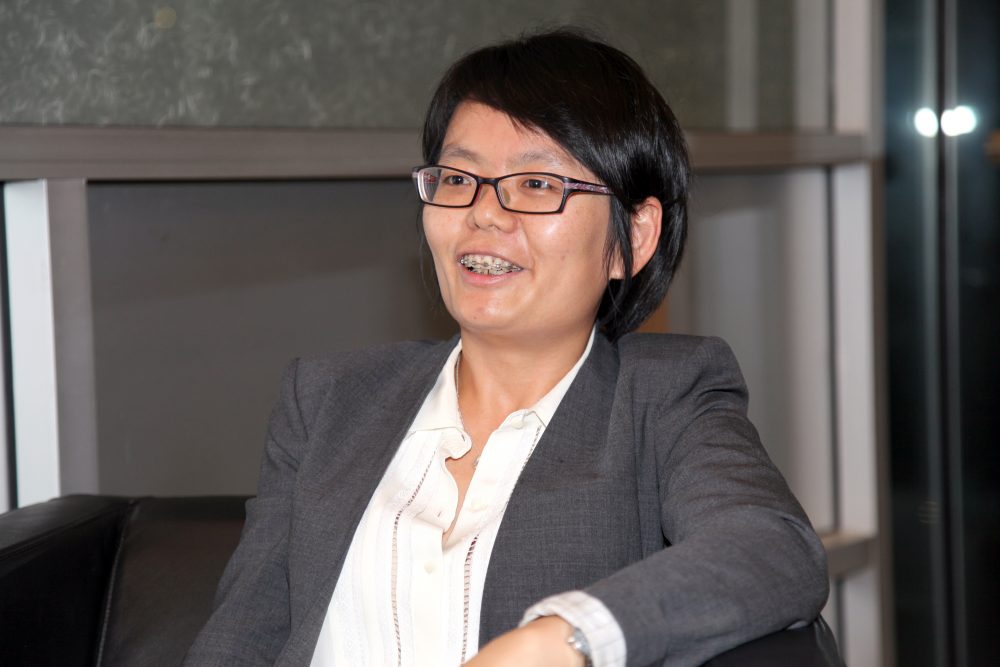
Photo by Aaron Salcido.
Ruixue Jia is a political economist at UC San Diego’s School of Global Policy and Strategy. Her research focuses on the interplay of economics, history, and politics in China. Before taking part in a Zòcalo/UCLA Anderson School of Management event, “Is China Prepared to Lead the Global Economy?” at the National Center for the Preservation of Democracy in downtown Los Angeles, she spoke in the green room about the legacy of Confucius, and the difference for a politician between strength and power.
How did you end up in Southern California?
I grew up in China, but I did my Ph.D. study in Stockholm, Sweden. Then after that I came to work at UC San Diego.
What do you miss or not miss about China?
When you think about China, you can imagine it’s a country with a lot of history, poetry, with culture. But when you’re there, it’s not a very imaginative country, I think.
Hasn’t Xi Jinping been advocating a revival of classical Chinese culture, and Confucianism?
Clearly, communism had a hard time [trying to prove] that it was the people’s ideology. So Xi does try to revive this classical culture, but it is difficult; it’s lost. I don’t know whether you recall this, but in the past there was this Confucian sculpture in Tiananmen Square, but it was moved. [The 31-foot bronze statue of the Chinese philosopher was mysteriously removed overnight in April, 2011.] Once you’ve lost the culture it is difficult to get back.
You’re from Shandong province, where Confucius came from. Is there any sign there of his legacy?
Not of the better side. You see this bad side, like people who are so interested in becoming a government official because that’s thought to be the correct way of making a contribution to the country. You see some legacies; you see people pay a lot of attention to education, this kind of legacy. Some of these are not necessarily good, like parents expect a lot from their children because of this filiopietistic type of Confucian ideal.
Was there a teacher or professor who particularly influenced you?
There are many. For my research, my advisor, a Swedish economist, played a very important role. He teaches you how to be a good scholar, which is to be creative but also to work hard to get all the details right.
Who do you think is more powerful today, Xi Jinping or Donald Trump, and why?
It depends how you think about power. They are strong leaders, but they’re not that powerful in terms of people having a lot of trust and respect for them. If you purely look at data, and you interview American citizens and Chinese citizens, they don’t really tell you.
Which books on U.S.-Chinese relations could you recommend?
I’m reading one right now, Destined For War—Can America and China Escape Thucydides’s Trap? by Graham Allison. He’s also very optimistic in some ways about China’s future. It’s very educating.
Do you think that China will be able to lead the world economy?
It will be the No. 1 country, if you measure that by GDP, for sure. If you purely speak about economics, I’m fairly optimistic. I’m more pessimistic how the political factors might affect growth. Right now we see a lot of political centralization. The naïve view is that if Xi wants to reform, this could be easier to lay down—at least easier than before. But so far we haven’t seen too much, since he has been in power for quite a few years. But the proposed reforms have not made much progress.



